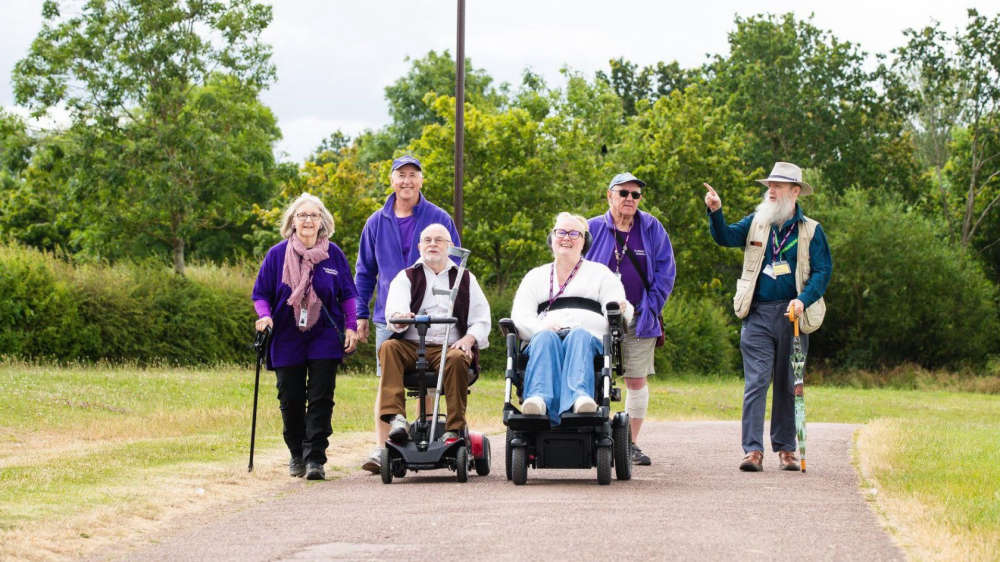
Family legal matters can seem confusing, especially if the process is new.
People in Milton Keynes who face divorce, child arrangements, or other family law issues often want support that is nearby and easy to reach. Getting a clear idea of what will happen during the first visit can make things less stressful for individuals attending appointments.
Legal practices in the area offer various services. Some focus on divorce or separation while others help with prenuptial agreements, adoption, or financial settlements. This range means clients can find a solicitor whose skills match their needs, whether for challenging cases or more general family matters.
Firms in the area often highlight their experience with the local court system and their familiarity with procedures specific to Milton Keynes, which can make the process smoother for clients.
Preparing for an initial meeting takes careful organisation. Collecting documents, listing questions, and defining objectives can transform a first consultation from an overwhelming experience into a focused opportunity for guidance. With proper preparation and local support, handling family legal matters becomes less intimidating.
The Essential Documents to Bring to Your Family Law Appointment
Good preparation before meeting a solicitor often brings time and cost savings. Proper documentation helps when consulting family law offices near me in Milton Keynes.
Financial records often play a big part in family law cases. Some examples are recent bank statements, details about mortgages, pension paperwork, and letters that show how much a property is worth. For divorce cases, bringing several months of bank statements helps a solicitor understand the financial situation better.
Solicitors always require personal identification. Examples include a passport or driving licence combined with proof of address such as a recent utility bill. These documents ensure that required identity checks are completed efficiently and comply with legal regulations.
Existing legal documentation relevant to the matter is important. This may include marriage certificates, prior court orders, or letters from solicitors acting for another party. Court papers received for ongoing proceedings should also be brought along, as they often outline deadlines and instructions that must be followed.
Creating a timeline of key events provides practical support during appointments. Recording important dates connected with relationships, children, or property matters creates a clear chronology. This helps the solicitor quickly understand the circumstances and identify any issues needing prompt attention.
Common Legal Processes for Family Matters in Milton Keynes
Learning how family law operates in Milton Keynes supports better preparation for each stage of a legal matter. The local court system manages a range of family issues such as divorce proceedings and child arrangements.
Most family cases in Milton Keynes are heard at the Milton Keynes County Court and Family Court on 351 Silbury Boulevard. This court addresses everything from divorce applications to financial disputes and child arrangement orders. Knowing the court location can reduce uncertainty about the process.
No official government statistics currently cover the duration of every family law case in Milton Keynes. However, solicitor firms in the region state that straightforward divorce proceedings may conclude in several months. Financial settlements and child arrangement matters often require longer time frames.
Some divorces may be handled within four to six months. Financial order applications and complex child arrangements typically extend beyond six months. Contested cases sometimes last up to a year or longer, depending on case details, court resources, and cooperation between parties.
Several local mediation services operate in Milton Keynes, offering alternatives to court. Mediation is often quicker and less costly than court proceedings. Courts generally only consider applications for most family law orders after a Mediation Information and Assessment Meeting has been attended, unless specific exemptions apply.
The Milton Keynes Court Structure
The family court system in Milton Keynes follows the national structure, though certain local practices influence how cases progress. Knowing these pathways gives clarity regarding typical case timelines and decision points throughout a legal process.
Family cases are assigned to different levels based on their difficulty. Simpler matters might be heard by legal advisers or district judges, while more complicated cases go to circuit judges. For example, an uncontested child arrangements case might see a district judge at Milton Keynes Family Court for the first hearing, often within four to eight weeks of filing.
In contrast, a complex dispute involving overseas assets could go before a circuit judge, or be transferred to the Central Family Court in London for specialist handling. This organised system helps courts balance workloads efficiently and allows families to have their situation managed by those with suitable background.
The Milton Keynes Family Court works closely with the Central Family Court in London for certain specialised matters. Cases involving cross-border divorce or international finances are sometimes transferred to London when they require knowledge not available locally. For example, a cross-border financial dispute brought by a Milton Keynes resident might be transferred while still allowing the local solicitor to continue managing parts of the case.
Questions to Ask During Your Initial Consultation
Arriving with prepared questions allows the initial meeting with a solicitor to be as productive as possible. These questions assist in determining whether a particular solicitor is suitable for the circumstances.
Details about fees remain an important consideration at the outset. Clients should request information regarding hourly rates, the availability of fixed fee options for specific services, and payment terms. Certain solicitors provide fixed fees for straightforward matters such as less complex divorce cases. Others may rely on hourly rate charging structures for more involved legal work.
Enquiring about the solicitor's background with cases of a similar nature is beneficial. A practitioner who regularly manages similar matters is likely to have a good sense of typical outcomes and potential complications. Matters involving business assets or international considerations benefit from a solicitor whose background includes work in those specialised areas.
Requesting realistic timelines and possible outcomes is advisable. A reliable solicitor will provide candid assessments rather than guarantees. Explanations should cover possible ranges of results and outline circumstances that could influence the progression or resolution of the matter.
It is important to clarify communication arrangements from the beginning. Firms may describe how frequently updates will be provided and designate a specific contact for regular communication. In some offices, routine matters are managed by paralegals or trainees, while qualified solicitors supervise the case and attend court hearings.
How to Evaluate if a Family Law Office is Right for You
Finding an appropriate solicitor requires consideration of several factors beyond qualifications. In family legal matters, the level of trust and communication between solicitor and client often plays a central role in achieving a positive outcome.
The area of specialisation held by a solicitor should align with the type of family law issue requiring attention. Some practitioners focus on higher value financial cases or matters involving international factors. Others handle a broad range of matters such as divorce, children issues, or prenuptial agreements.
Location and accessibility remain practical considerations. Regular meetings may become necessary, so selecting an office situated close to places frequently visited in Milton Keynes often helps save time and reduce stress. Some legal offices also offer remote appointments, providing flexibility to those who benefit from online access.
The approach adopted by a firm when handling family disputes affects the process and outcome. Some solicitors favour a firm, assertive strategy, while others prioritise solutions based on open communication and negotiation.
Evidence of appropriate accreditations offers reassurance about a solicitor's approach and background. Membership in Resolution means a practitioner follows a constructive, non-confrontational method to settling family disputes. Those with family law accreditation from the Law Society show a recognised standard of skill and commitment to this area of practice.
Preparing Mentally and Emotionally for Legal Proceedings
Family legal matters often trigger strong emotions. Sound mental preparation enables clearer thinking and supports resilience through a potentially challenging process.
Legal proceedings often bring stress. Even straightforward cases require paperwork, important decisions, and at times, difficult discussions with others. Being aware of this ahead gives a realistic sense of the commitment involved and sets expectations for the path ahead.
Individuals involved in family legal matters may benefit from professional emotional support alongside legal guidance. Counselling is accessed by many during family breakdowns, offering assistance with stress management and decision-making. Milton Keynes offers local counselling services specialising in relationship issues and separation support.
Maintaining open communication with solicitors helps address confusion that may arise during the process. Solicitors can provide further explanations or break down complicated information into manageable steps, allowing each stage to proceed with better understanding and reduced stress.
Keeping emotional responses distinct from the legal decision-making process can support more objective choices. Factors determining legal outcomes typically include financial fairness and the welfare of children, rather than personal feelings about the relationship breakdown.
Awareness of likely processes and good organisation reduces uncertainty when engaging with the family law system in Milton Keynes. Careful planning, collection of relevant documents, and securing guidance from knowledgeable professionals support progress during legal proceedings and help individuals handle what can often be a difficult period.















